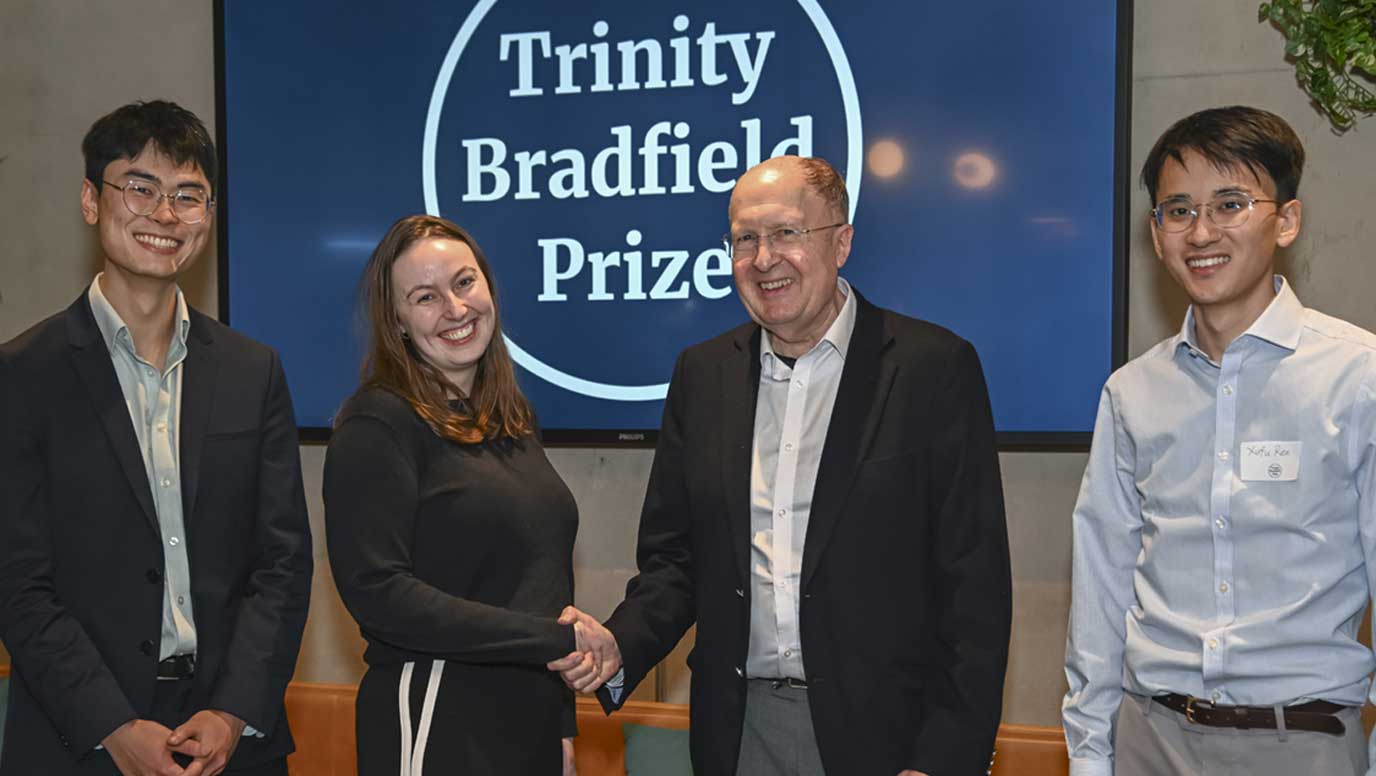FemTech AI innovator Demetria wins 2025 Trinity Bradfield Prize

Founded by CEO Lorna MacLean, Demetria is using cutting-edge AI technology to reduce the time it takes to get an endometriosis diagnosis from 9 years to 9 minutes. Endometriosis currently affects 190 million women and girls and is the leading cause of infertility globally.
Second place went to Healthspan Biotics which is developing a probiotic therapy to treat Alzheimer’s Disease by activating a novel pathway discovered through artificial intelligence and confirmed via laboratory validation.
Using AI and laboratory experiments, Healthspan identified key pathways dysregulated in AD and discovered a unique probiotic strain that produces molecules essential for maintaining neuronal health. Its goal is to deliver a natural, cost-effective, and globally accessible supplement that complements existing treatments and offers a novel strategy to delay the progression of AD.
The company is currently preparing clinical trials to evaluate the efficacy and safety of its probiotic therapy. Entrepreneur Simon Galbraith (co-founder of Redgate Software) is Chair at Healthspan Biotics.
Awarded in honour of Geoffrey Hellings (Trinity College, 1924), this year’s Hellings Prize was won by PowerMatrix which provides next-gen energy efficient high-performance power supplies for emerging markets such as AI xPU boards, data centers, drones, e-mobility, aerospace and industrial applications.
Leveraging advanced technologies such as patented circuit topology, magnetic integration, planar design, system optimization, and advanced R&D processes, PowerMatrix says its products achieve unmatched efficiency, compactness, and reliability. The startup is already collaborating with University of Cambridge spin-outs Nyobolt and Cambridge GaN Devices on separate initiatives.
An Angel Prize was introduced to this year’s competition to celebrate a previous winner’s commercial performance over the past 12 months. The accolade was shared by Life Sciences duo BioTryp Therapeutics and Cambridge Nucleomics.
BioTryp raised £300k pre-seed cash last year from Cambridge Enterprise Ventures, Parkwalk Advisors and the QUBIS Innovation Fund to advance development of its novel anti-biofilm compounds. The company is currently readying a £2m seed round.
Cambridge Nucleomics helps big pharmas, biotech companies and clinical researchers with a unique value proposition for accurate, fast and direct quantification of native RNA. The company offers a fully automated point-of-care sepsis test in under an hour, and is in the process of signing off its pre-Series A round.
All the finalists will benefit from mentoring and complementary membership of The Bradfield Centre at Cambridge Science Park where the competition was staged. Demetria clinched £10k for 1st place, while Healthspan Biotics, PowerMatrix, BioTryp Therapeutics and Cambridge Nucleomics each took home £5k.
Richard Turnill, Senior Bursar at Trinity College said: “Supporting the translation of world class research to real world application is core to Trinity College’s purpose. Trinity is proud to support entrepreneurship at the College, the University and across the city of Cambridge. The Trinity Bradfield Prize final provides recognition for excellence and inspiration for the next generation of Cambridge entrepreneurs.”
The competition was judged by a panel chaired by Nobel Laureate and Former Master of Trinity, Sir Greg Winter, alongside Kerry Baldwin (Managing Partner and co-founder, IQ Capital), Christine Martin (Head of Ventures, Cambridge Enterprise), Robert Swann and John Yeomans (Cambridge Angels), James Parton (Managing Director, The Bradfield Centre) and entrepreneur Maximilian Ge.
Bradfield Centre MD, James Parton said: “It’s been another exceptional year for the prize, both in terms of quality and volume of applications. I’ve been pleased with the reach of the competition across The University of Cambridge, with this year’s applications representing an impressive 34 departments and 24 colleges.
“The quality bar was high, and the judges spent considerable time deliberating. I’m delighted for the teams winning the cash prizes, but all finalists will benefit from our ongoing support via mentoring, introductions and complimentary membership of The Bradfield Centre.”
Demetria CEO, Lorna MacLean said: "The Trinity Bradfield Prize is Cambridge at its best—providing early-stage founders with the rare opportunity to have their ideas scrutinised by both world-class investors as well as Nobel laureates such as Sir Greg Winter. What makes this competition so special is its emphasis on the technical and scientific rigour, rather than, as is often the case, polished storytelling.
“For Demetria, winning first prize was a proud milestone, but we believe the real value lies in the additional benefits that come along with being a finalist. Having listened to pitches from last year's finalists on what this competition has unlocked for them in terms of business progression, we can't wait to see what's in store for Demetria in the year to come."
• You can listen to more about the Trinity Bradfield Prize winners on the Cambridge Tech Podcast, hosted by Faye Holland and James Parton on Tuesday, 28th January.

